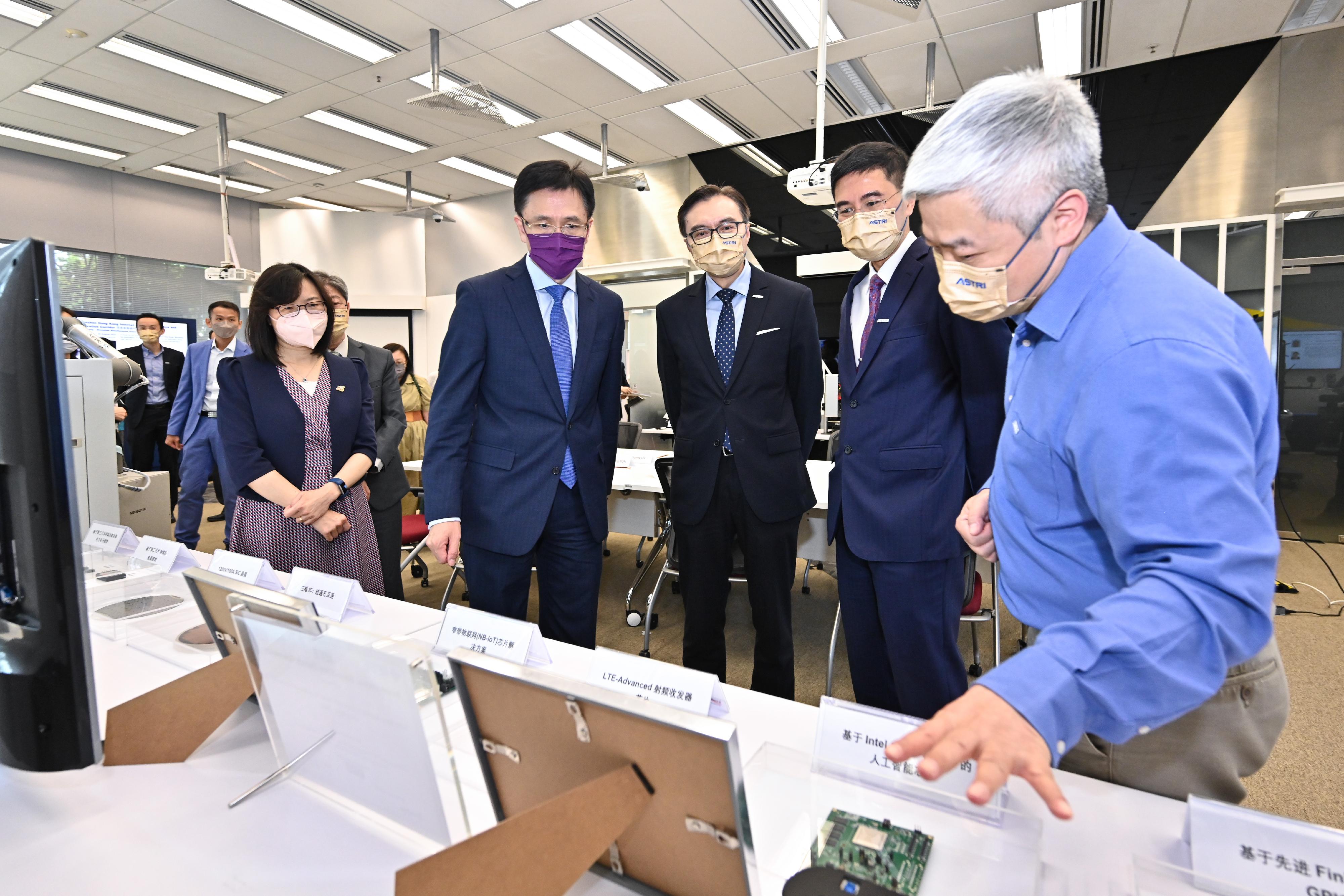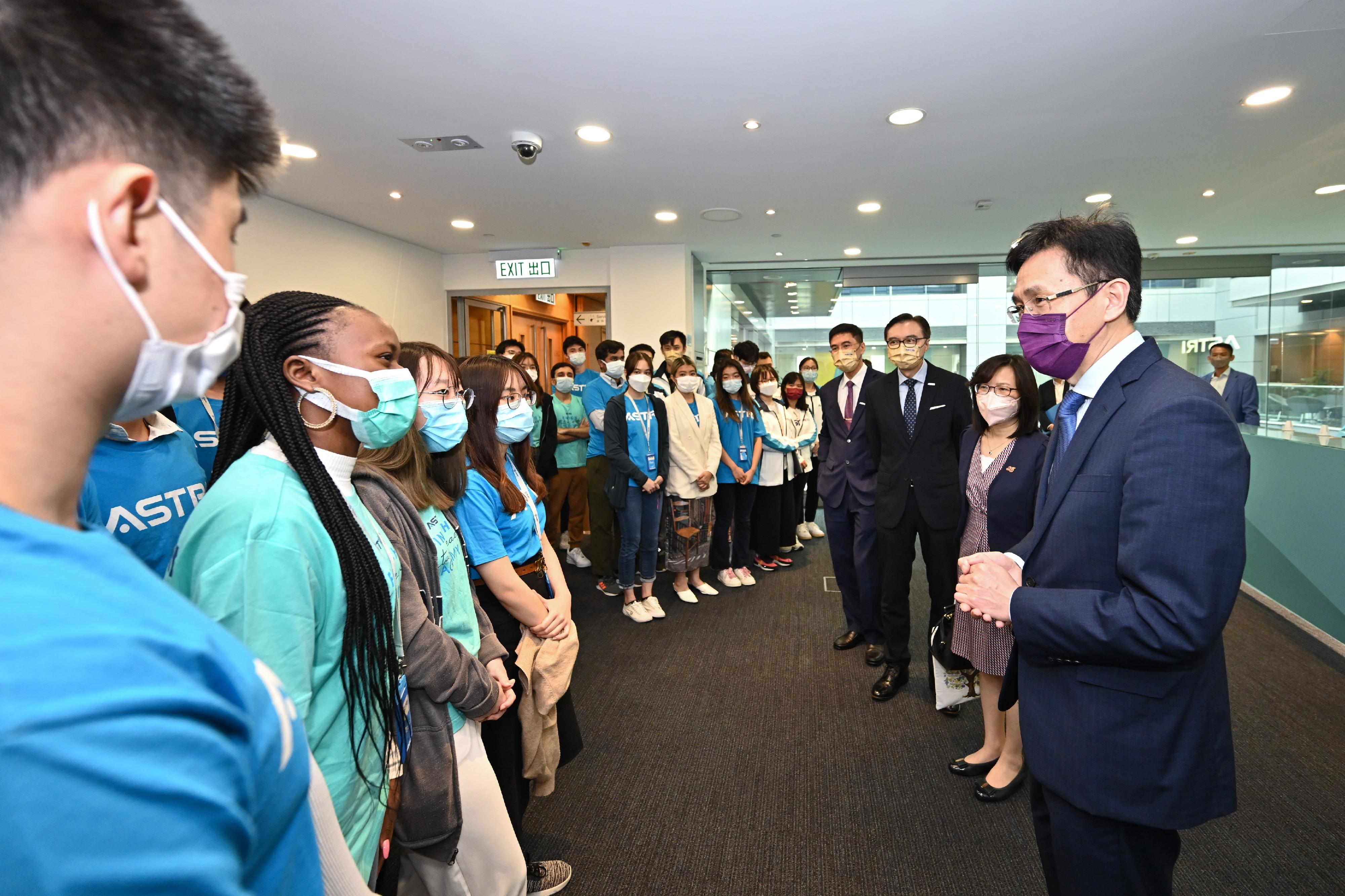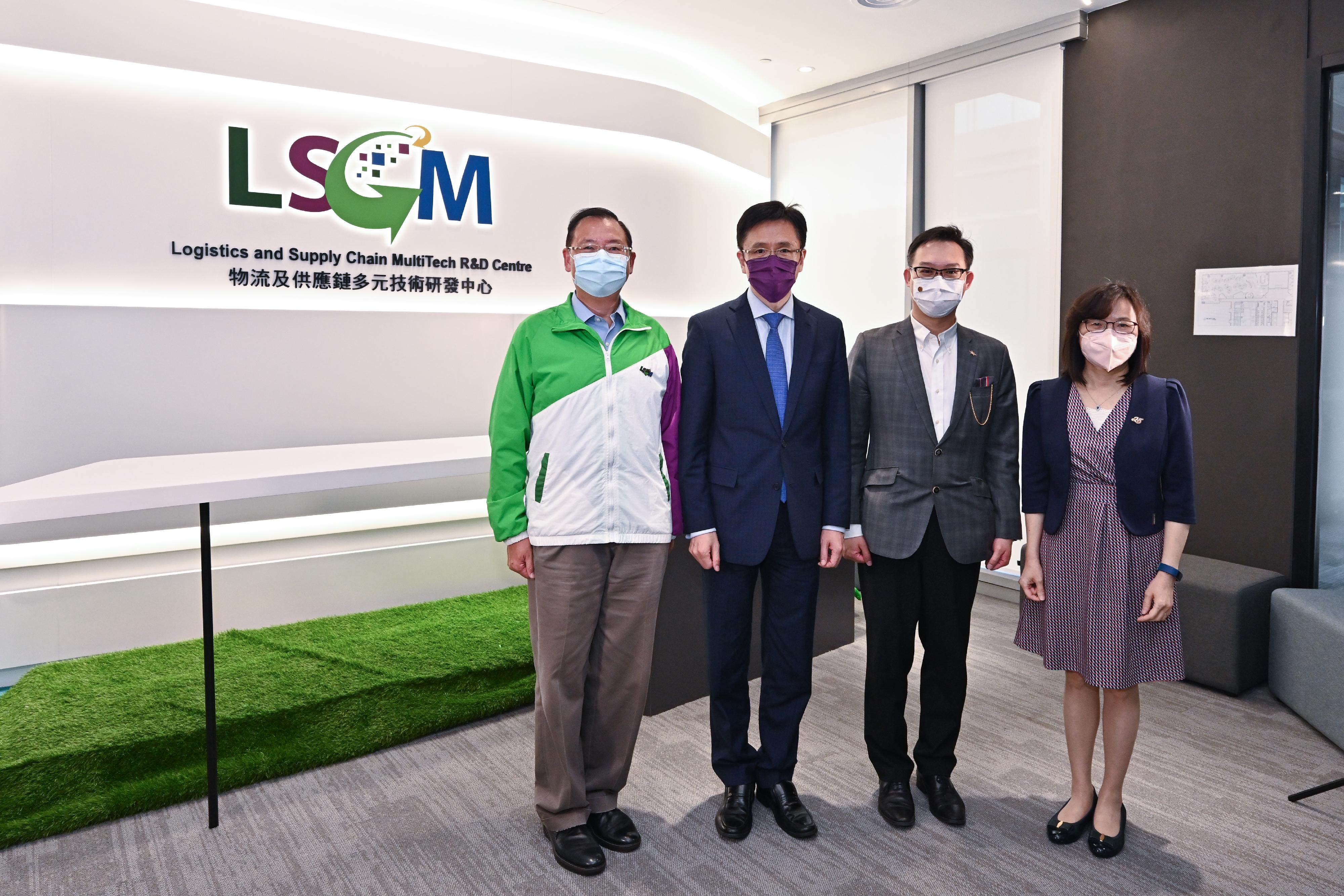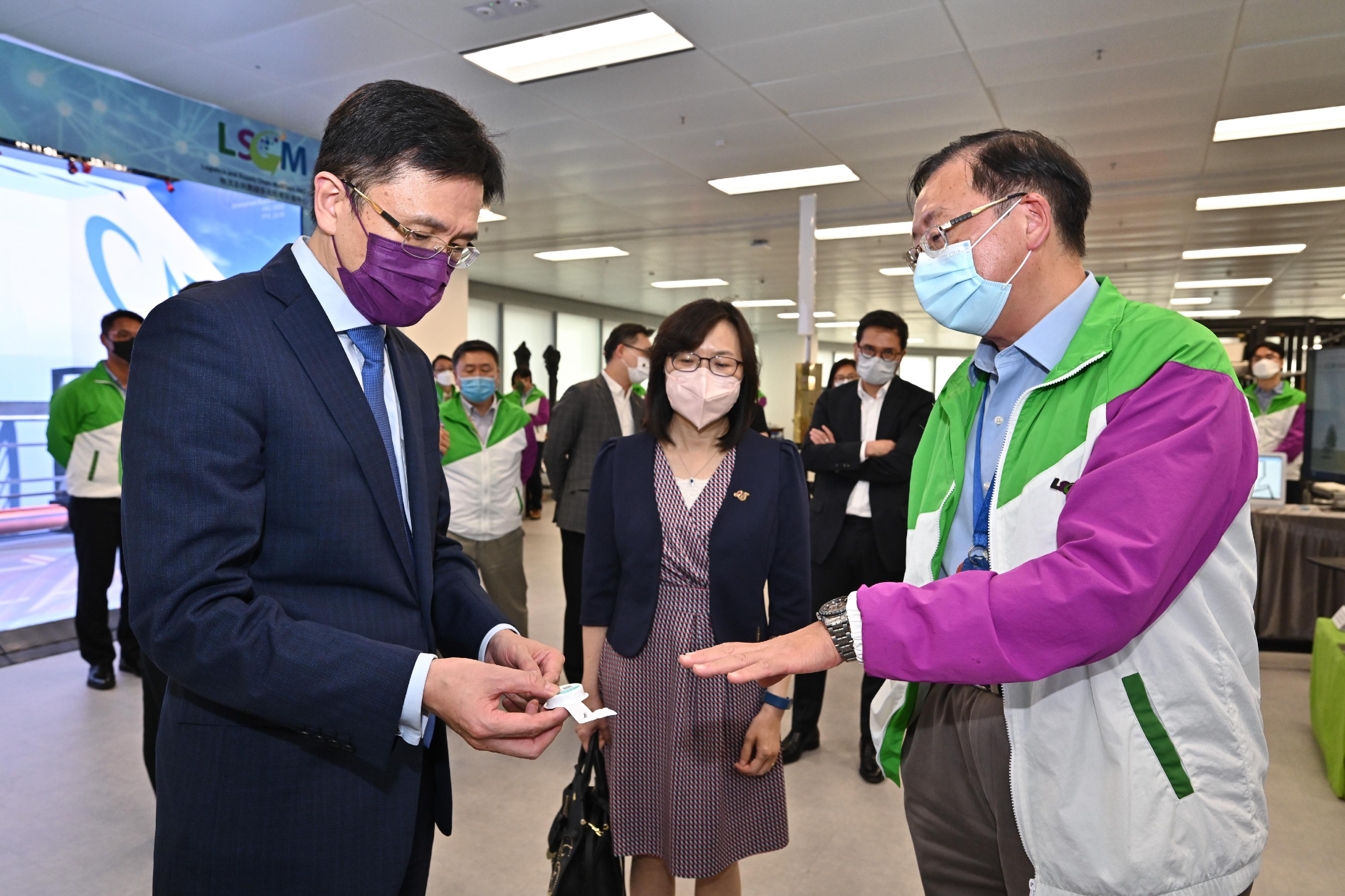The Secretary for Innovation, Technology and Industry, Professor Sun Dong, accompanied by the Commissioner for Innovation and Technology, Ms Rebecca Pun, visited the Hong Kong Applied Science and Technology Research Institute (ASTRI) and the Logistics and Supply Chain MultiTech R&D Centre (LSCM) at the Hong Kong Science Park today (July 19) to learn more about the work focus and development of the two research and development (R&D) centres.
Professor Sun first visited ASTRI and was briefed by the Chairman, Mr Sunny Lee, and the Chief Executive Officer, Dr Denis Yip, on the work and R&D technologies of ASTRI, with demonstrations including the Cellular Vehicle-to-Everything (C-V2X), fintech, semiconductors, Internet of Things, Energy-efficient Direct Power Distribution System, and the Key Technology and Complete Set of Processes for High Density and High Reliability Electronic Packaging that won the first prize of the 2020 State Scientific and Technological Progress Award. The digital twin technology and the "Augmented Reality (AR) Display Solutions" technology which will spearhead the development of the "metaverse" that has become popular in recent years were also introduced.
Professor Sun also exchanged views with young R&D talents and over 50 summer interns from local, mainland and overseas universities working in the ASTRI. He encouraged young people to further develop their innovation & technology (I&T) careers in Hong Kong and hoped that the ASTRI would strengthen its co-operation with local universities on commercialisation, with a view to driving development of industries and enhancing Hong Kong's competitiveness.
Professor Sun then visited the LSCM and received a briefing from the Chairman, Dr Alan Lam, and the Chief Executive Officer, Mr Simon Wong, on its major R&D areas and focus. In response to the COVID-19 outbreak, the LSCM has developed more than 10 systems for government health authorities in support of various anti-epidemic measures, including the "StayHomeSafe" electronic wristbands and the monitoring system for home quarantine, logistics technologies deployed in the Community Testing Programme, different systems which supported the COVID-19 Vaccination Programme; and the Isolation Facilities Service Logging System that helped increase the facilities' operation efficiency, over the past two years. The LSCM team also gave an introduction on various R&D projects developed for various government departments, such as the Seat Occupancy and Seat Belt Fastening Detection System for Minibus and the Landslide Detection and Alerting System.
Professor Sun acknowledged the role of both R&D centres in creating a vibrant I&T ecosystem, and acting as a focal point for technology collaboration among the Government, industry, academia and research sectors. He said he hoped that both centres, in addition to conducting applied R&D in key areas, would also work closely with the industry, with a view to encouraging local private enterprises to invest in R&D and striving to commercialise R&D outcomes. He also expressed confidence in young R&D talents' creativity and hoped that they can drive the new economy and help improve people's lives with I&T. Professor Sun said he highly appreciated the LSCM's tireless efforts in developing anti-epidemic products and systems to help Hong Kong cope with the epidemic during the COVID-19 outbreak and expressed his gratitude to all of the unsung heroes of the LSCM for their contributions.
Follow this news feed: East Asia









